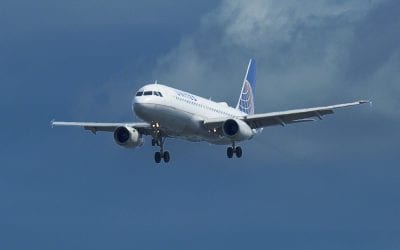For most travelers these days, the whole air travel experience has become something to be endured rather than enjoyed. Being pampered is a thing of the past unless you are a super-elite flier.
There are still travelers who do enjoy top-notch service, nearly always sit in first class and never have a problem finding a competent human to help them. They are the super-elite fliers, the sort portrayed by George Clooney in “Up in the Air.” At United Airlines they are called “Global Services members.”
Ninety-minute telephone hold times? They don’t happen. When I have called for Global Services members even during the worst travel days, the phone is answered either instantly or within a few minutes, and by an English speaking agent in the U.S.
If a connection is missed, a Global Services agent will probably be there at the gate to meet the traveler, with a boarding pass for the next flight, usually in first class.
As for those frustrating days when there are seats in business or first class, the flight is in a few days and the upgrade hasn’t cleared? Global Service members or their travel agents can call, and if there is space, a cheerful agent will confirm the upgrade.
Plus, when something goes wrong and it’s in any way United’s fault, the customer service response is swift and almost always financially generous.
So, the number one question I get asked about this program — “How do you get in it?”
The short answer is “Spend a lot of money.” But, it’s more complicated than that.
While most elite programs are based on number of miles flown, there is no exact number United Airlines will provide for Global Service status. It’s not all about the miles, but about how much a traveler paid to get those miles.
Case in point, a venture capitalist client of mine flew over 150,000 miles a year with United a few years back. Not on partner airlines, not on code-shares, strictly on United. He asked about the program. Our agency sales representative, as a special favor offered to look into it.
The rep came back to me and said, “He’s not even close, because over 70 percent of his miles were ‘discount miles’.” He suggested the client simply buy higher-priced tickets and bill his clients accordingly. This went over about as well as would be expected.
But what he meant, and what United wants for Global status, is full fare coach miles — Y or B class fares, or paid business or first class fares. They do count Z class fares, which are the most limited, lowest priced and often nonrefundable business class fares; and any D, C, J, A or F fare.
If a fare starts with any other letter, it doesn’t count. Even if it seems expensive. Although regarding those Y and B fares in the U.S., in many cases they are higher than discount business class fares. (Most cross-country Y or B fares are in the $1,500 one-way range.)
Moreover, if a flight is operated by a code-share partner, it also doesn’t count. This includes flights on Lufthansa, an airline that United trumpets as a near-merger partner. The only exception, and it is a recent one, is Continental, because the merger has been approved.
The partner exclusion is particularly frustrating, because some of these flights show in United’s system as United flights, and one client of mine almost certainly lost Global Services status for this year because she flew too many Lufthansa flights.
As to how many miles? No one quite knows. It used to be that 50,000 qualifying miles was sufficient, now the rumor is that it’s 70,000. Based on my clients’ experience, international miles also seem to count more than domestic.
It certainly seems like this year United did tighten the program in some way, simply because of the number of frustrated clients who didn’t requalify.
For anyone thinking they might be close to Global Service status, it almost requires working for a company that allows business class travel, or being a self-funded traveler. Plus, it requires diligence, especially in avoiding the many code-share flights that operate under the United label.
On the other hand, there’s a second option. Anyone who has enough money (or a generous enough corporate travel policy) to buy expensive enough tickets to qualify for Global status, might just decide they can break the loyalty bonds, and buy business and first class tickets that will get them treated decently by any airline that strikes their fancy.
Janice Hough is a California-based travel agent a travel blogger and a part-time comedy writer. A frequent flier herself, she’s been doing battle with airlines, hotels, and other travel companies for over three decades. Besides writing for Travelers United, Janice has a humor blog at Leftcoastsportsbabe.com (Warning, the political and sports humor therein does not represent the views of anyone but herself.)




